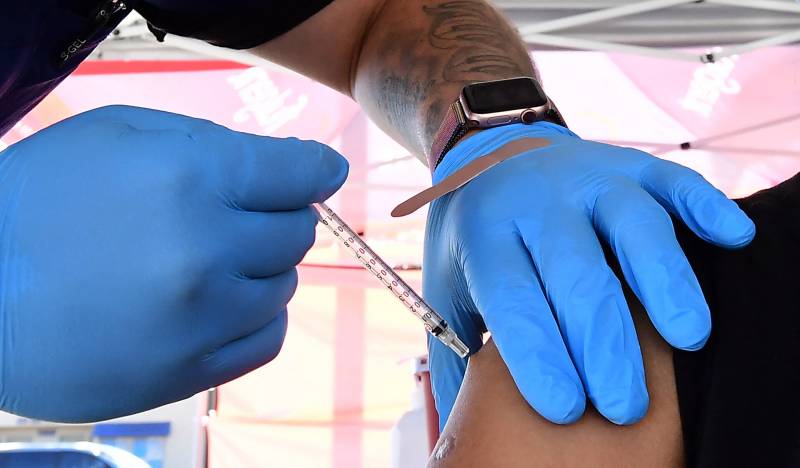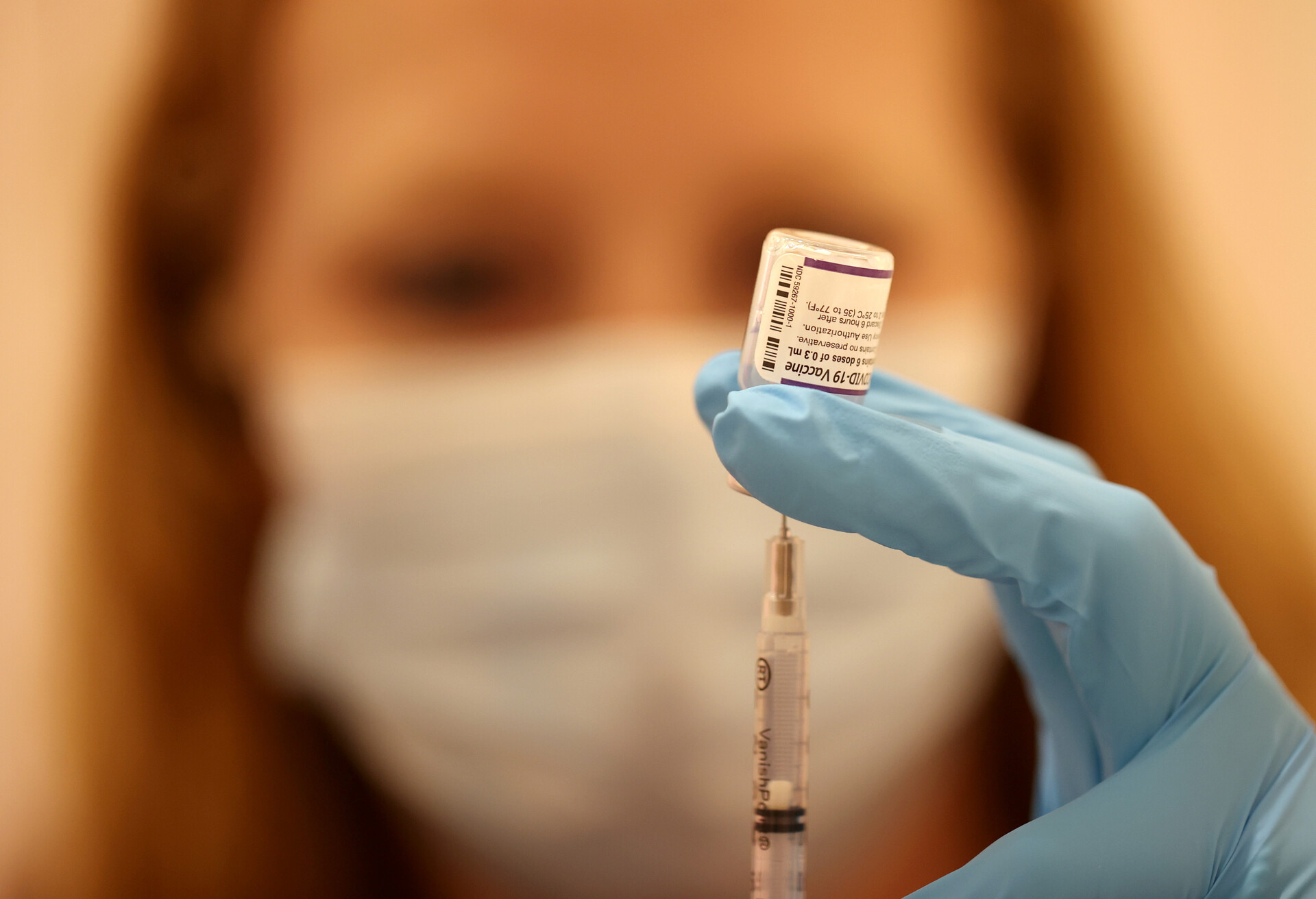Newsom applauded California’s aggressive approach to testing.
“We have the most robust testing program and protocols in the nation,” he said.
Earlier this year, the U.S. struggled to keep pace with the need for genomic sequencing to track mutant variants of COVID-19, spurring President Joe Biden to spend roughly $1 billion to ramp up federal testing capability.
In January, the U.S. sequenced just 8,000 COVID-19 samples per week, but last month the country sequenced 10 times that many — roughly 1 in 7 positive cases, according to the CDC.
California, which last May received $17 million of Biden’s nationwide investment, sequenced 16% of its positive cases in August 2021, the latest numbers posted publicly by the state health department.
“I’ll remind people it’s not surprising in many respects that California is announcing the first case,” Newsom said. “This state is the birthplace of, after all, of the biotech [industry]. UCSF is one of the leading genomic sequencing institutions in the world, and we are blessed to have their partnership and have their expertise.”
Peter Chin-Hong, a professor at UCSF’s medical school, told KQED that California has a robust surveillance system for tracking COVID-19 variants. That system is more advanced than the nation’s, he said.
The U.S. “has not been at the forefront of genomic sequencing for variants in general,” he said.
“California Department of Public Health is doing better,” he said. “It’s easier in California, because of a close partnership between politicians, academics and private labs, and a really strong public health department.”
State and city health departments say they’re continuing to monitor for the variant using the genomic sequence surveillance system.
Aggressive testing underway
Newsom said officials cannot reveal too much information about the person’s private situation, but in broad strokes: They are not hospitalized, and no one they’ve come into contact with has tested positive “yet to our knowledge,” he said.
“To help detect and prevent the spread of this new variant, the State of California is increasing COVID-19 testing at our airports for arrivals from countries identified by the Centers for Disease Control and Prevention (CDC),” state health officials said in a statement.

